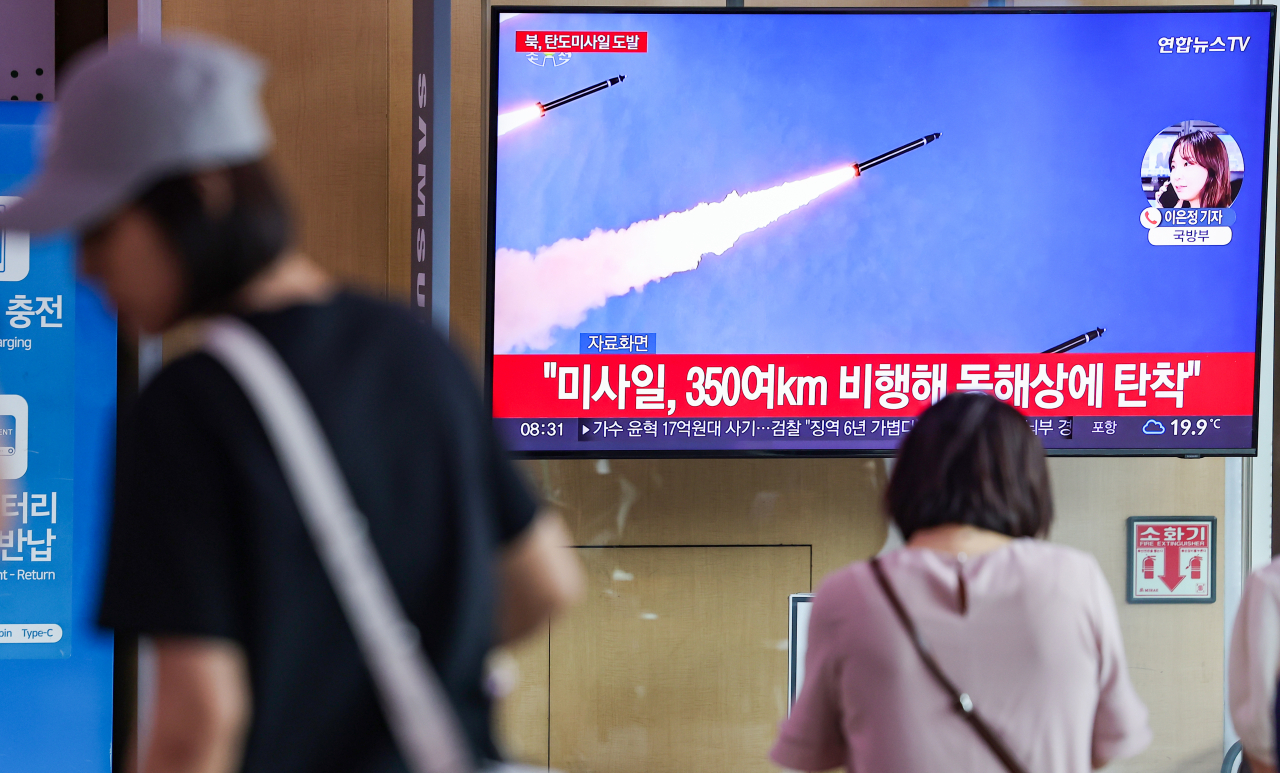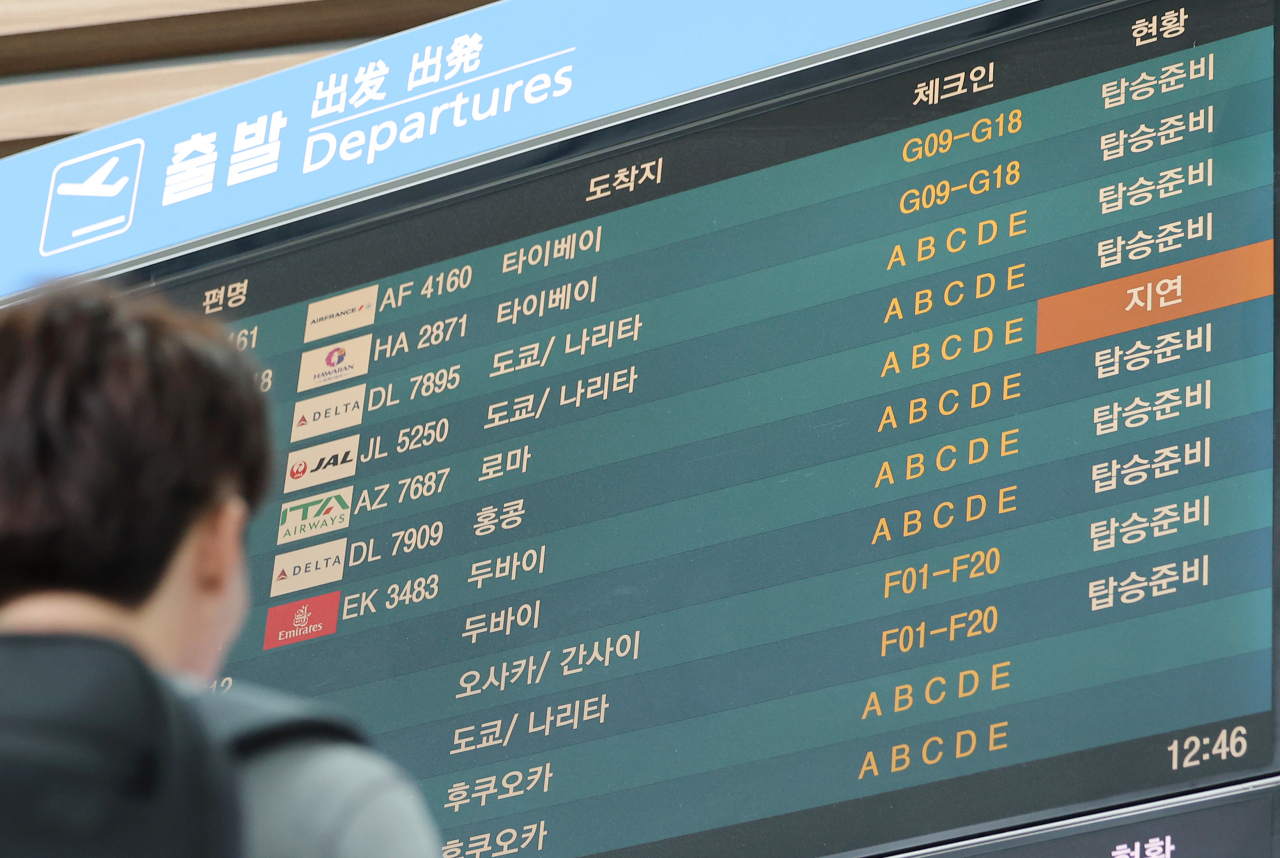N. Korea fires 10 projectiles into East Sea, conducts GPS jamming
By Son Ji-hyoungPublished : May 30, 2024 - 08:55

North Korea on Thursday fired at least 10 projectiles believed by South Korea to be short-range ballistic missiles, as Pyongyang continued military provocations following the three-way talks between the leaders of South Korea, Japan and China earlier on Monday.
According to the Joint Chiefs of Staff of South Korea's military, the projectiles, fired at around 6:14 a.m., flew 350 kilometers from the Sunan district in northwestern Pyongyang, before falling into the East Sea.
Seoul and other populous cities such as Incheon, Daejeon and Cheongju, North Chungcheong Province, are all within 350 kilometers of the launch site.
South Korea's military said in a statement that it detected, traced and monitored North Korea's missiles "immediately after the launch," and shared the relevant information with the United States and Japan.
"We strongly condemn North Korea's missile launch as a clear act of provocation that poses a serious threat to peace and stability on the Korean Peninsula," the statement read.
"(South Korea's) military will keep close tabs on North Korea's activities by maintaining our defense capability and readiness to overwhelmingly counter any provocations, under a robust combined defense posture of South Korea and the United States."
Yin Sung-hwan, second deputy director of the presidential National Security Office, chaired a meeting Thursday to review the security situation and analyze the projectiles.
Nuclear envoys of South Korea, the United States and Japan held talks over the phone Thursday to discuss collaborative actions in response to "a clear violation of the United Nations Security Council resolution" with the ballistic missile launch, according to Seoul's Foreign Ministry. Joining the call were Lee Jun-il, director-general for North Korean nuclear affairs at the Ministry of Foreign Affairs; Jung Pak, US deputy special representative for North Korea; and Yukiya Hamamoto, Japan's deputy nuclear envoy.

Later on Thursday, the JCS said it had detected North Korean attempts to disrupt GPS signals on South Korean border islands off the western coast of the peninsula, from at around 7:50 a.m. to 9 a.m.
According to Seoul, the attempted signal jamming did not cause disruptions in South Korea's military operations. The interruption had minor effects on some fishing vessels and passenger ships on waters off the islands but did not lead to cancellations of the entire fishing operations there.
North Korea last launched a short-range ballistic missile on May 17. Thursday's launch was the North's seventh testing of its ballistic missiles this year.
After the trilateral meeting of President Yoon Suk Yeol, Japanese Prime Minister Fumio Kishida and Chinese Premier Li Qiang in Seoul, North Korea on Monday night launched what it claimed was a spy satellite, which exploded a few minutes after liftoff. Pyongyang announced that its attempt to put it into orbit had failed.
North Korea also sent hundreds of balloons carrying waste over to South Korea and the barrage reached the area near the border, according to South Korea's military on Wednesday.
On Tuesday, North Korean leader Kim Jong-un warned of actions in response to "a very dangerous provocation that cannot be easily overlooked," he said in a speech on his visit to the Academy of Defense Sciences.
According to North Korea's state-run Korean Central News Agency, Kim "cannot help being enraged" as he described South Korea's air exercise on Monday near the inter-Korean border involving around 20 fighter jets as a "hysterical attack formation flight."
Also on Sunday, North Korea warned of military action over South Korea's "continued encroachment on our maritime sovereignty" and "air espionage at the level beyond the wartime situation" using reconnaissance drones, just hours before Yoon's back-to-back bilateral talks with Kishida and Li, followed by a trilateral summit Monday.



















![[Today’s K-pop] Treasure to publish magazine for debut anniversary](http://res.heraldm.com/phpwas/restmb_idxmake.php?idx=642&simg=/content/image/2024/07/26/20240726050551_0.jpg&u=)